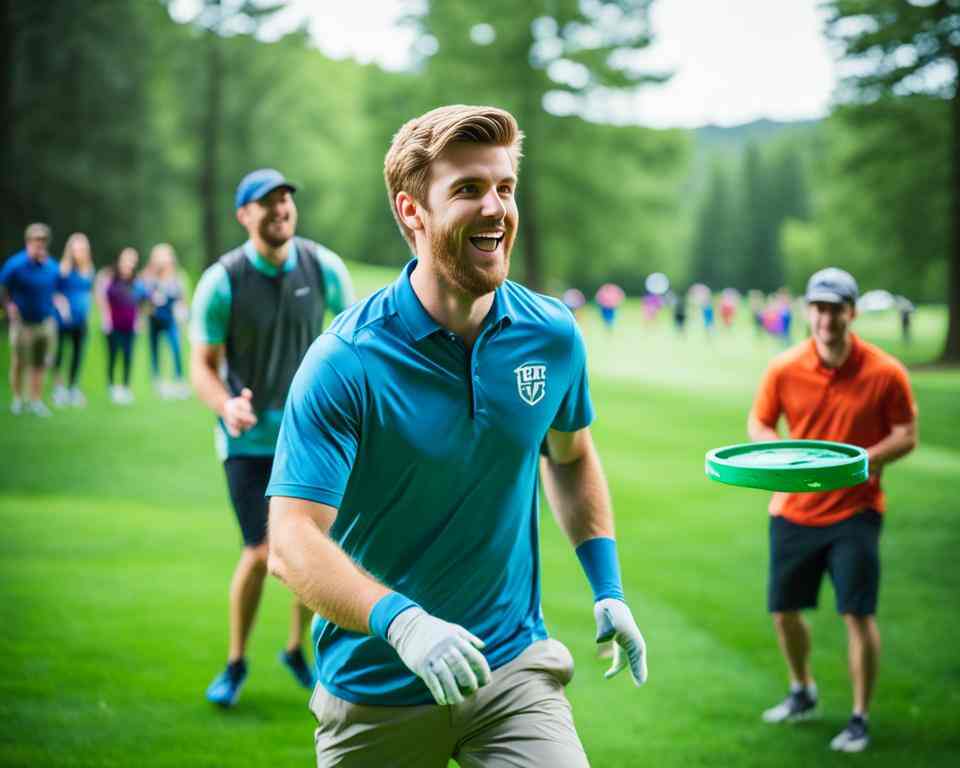Have you ever found yourself standing at the tee pad, watching a disc sail through the air, and wondered what it takes to orchestrate the vibrant community of disc golf leagues?
Beyond the throws and the chains, lies a tapestry of organization, competition, and camaraderie that forms the backbone of these leagues.
Join me as we dive into the inner workings of disc golf leagues, uncovering the strategies, structures, and spirit that bring players together on the fairways.
Key Takeaways:
- Discover Disc Golf: Learn the basics and join leagues for structured play.
- Explore League Structures: Understand formats, divisions, and ratings.
- Play with Integrity: Follow rules, etiquette, and fair play principles.
- Advance and Connect: Progress, build friendships, and contribute to the community.
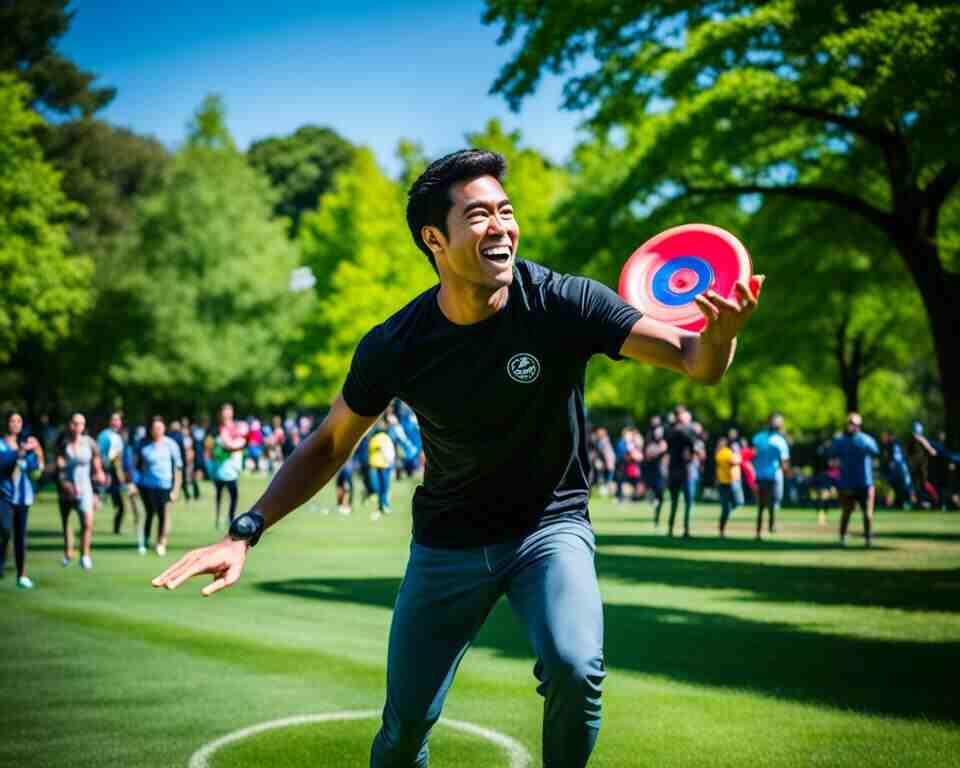
What is Disc Golf?
Disc golf, also known as Frisbee golf or frolf, is a game that shares similarities with traditional golf but is played with specialized flying discs instead of balls and clubs. Players aim to complete each hole in the fewest throws possible, navigating a course marked with designated targets called “baskets.”
Understanding Disc Golf Leagues
Disc golf leagues are organized competitions that bring together players of varying skill levels to compete in a structured format. These leagues offer opportunities for recreational players to engage in friendly competition, improve their skills, and foster a sense of community within the disc golfing community. This section delves into the fundamentals of disc golf leagues, highlighting their purpose, organization, and significance within the disc golfing community.
Getting Started with Disc Golf Leagues
Disc golf leagues offer enthusiasts a structured environment to enjoy the sport while fostering camaraderie and competition among players. Getting started involves finding a league that suits your preferences and skill level, as well as understanding the process of joining and participating effectively.
Finding a League Near You
Comprehensive Online Directories: Utilize websites such as PDGA.com (Professional Disc Golf Association) or local disc golf club websites to locate leagues in your area.
Social Media and Forums: Engage with disc golf communities on platforms like Facebook groups, Reddit threads, and specialized forums to discover league opportunities and gather insights from experienced players.
Word of Mouth: Network with fellow disc golfers at local courses, tournaments, or events to learn about existing leagues and their dynamics.
Joining a Disc Golf League
Membership Requirements: Understand any prerequisites for league participation, such as membership fees, age restrictions, or skill level assessments.
Registration Process: Follow league-specific registration procedures, which may involve online sign-ups, in-person registrations, or both.
League Orientation: Attend orientation sessions or meetings, if available, to familiarize yourself with league rules, schedules, and expectations.
Equipment Preparation: Ensure you have the necessary disc golf equipment, including discs suitable for league play, appropriate attire, and any additional gear specified by the league.
Embarking on your journey in a disc golf league requires careful consideration of available options and adherence to league protocols for a seamless integration into the community of players.
Structure of Disc Golf Leagues
Disc golf leagues exhibit diverse structures tailored to accommodate varying player skill levels, preferences, and community dynamics. Understanding these structures is fundamental to navigating the league landscape effectively.
League Formats
Singles vs. Doubles Leagues
Singles Leagues:
- Players compete individually, aiming to achieve the lowest score on each hole.
- Offers a competitive environment for solo players to hone their skills and track personal progress.
Doubles Leagues:
- Players form teams, typically consisting of two individuals, who alternate shots.
- Encourages collaboration and strategic planning, fostering teamwork and camaraderie.
Match Play vs. Stroke Play
Match Play:
- Involves head-to-head competition between players or teams on each hole.
- Winners of individual holes earn points, with the victor being the player or team with the most points at the end.
- Emphasizes winning individual holes rather than overall score, promoting aggressive play and tactical decision-making.
Stroke Play:
- Focuses on the total number of throws taken by each player or team across all holes.
- Players strive to complete each hole in the fewest throws possible, with the lowest total score determining the winner.
- Rewards consistency and precision over the entire course, requiring players to maintain composure and adapt to various challenges.
League Divisions and Ratings
Division Criteria
Divisions are often established based on player skill levels, ensuring fair competition and an inclusive environment.
Common criteria for division placement may include:
- Player ratings or handicaps derived from past performance.
- Experience level, such as beginner, intermediate, and advanced.
- Age or gender, facilitating age-appropriate or gender-specific divisions.
Rating Systems Used
Various rating systems are employed to assess player skill levels and facilitate divisional placement, including:
PDGA Ratings: Utilized by leagues affiliated with the Professional Disc Golf Association (PDGA), assigning numerical ratings to players based on their tournament performances.
Handicap Systems: Employed to level the playing field by adjusting player scores relative to their skill levels, enabling fair competition among participants of differing abilities.
League-Specific Ratings: Some leagues develop proprietary rating systems tailored to their unique scoring formats and participant demographics, providing customized assessments of player proficiency.
Understanding the diverse league formats and divisional structures enhances participants’ ability to select leagues that align with their preferences and abilities, fostering enjoyable and competitive disc golf experiences.
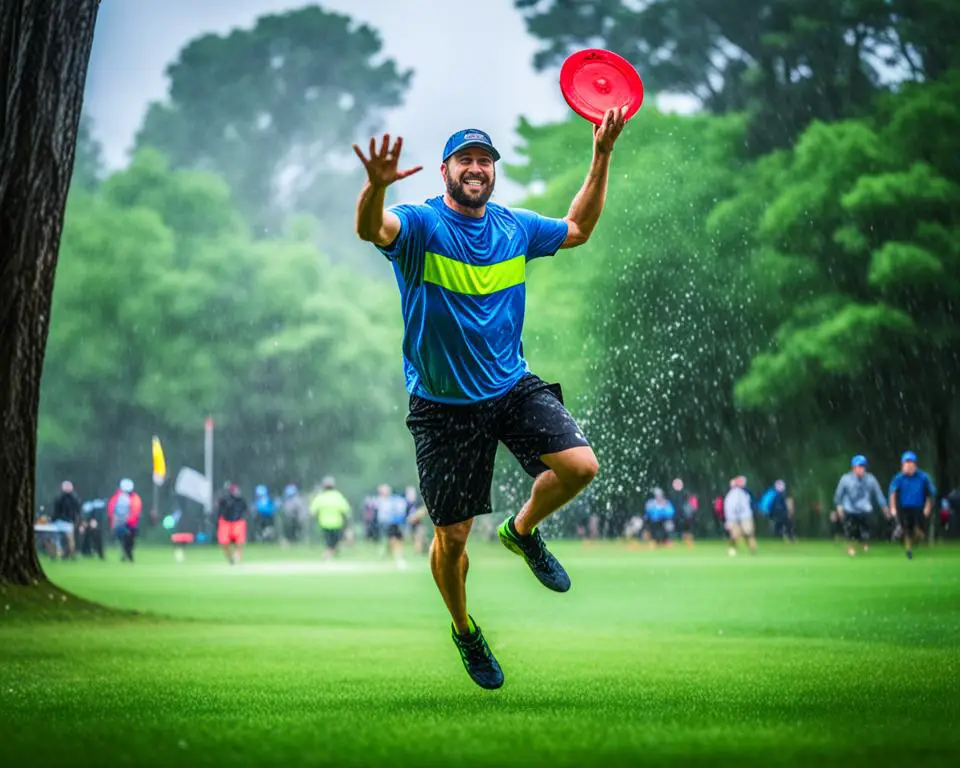
League Operations and Management
In the realm of disc golf leagues, efficient operations and meticulous management are paramount to ensure smooth functioning and an enjoyable experience for all participants. This section dives into the intricate details of how disc golf leagues are operated and managed.
Scheduling and Registration
Scheduling league events and managing registrations are foundational tasks for league administrators. Here’s a detailed exploration:
Event Planning:
- League administrators meticulously plan the schedule of league events, considering factors such as course availability, participant preferences, and seasonal variations.
- Advanced planning often involves creating a calendar of events for the entire league season, ensuring adequate spacing between tournaments and accounting for potential conflicts with other disc golf events or holidays.
Registration Processes:
- Establishing a streamlined registration process is essential to ensure maximum participation and minimize administrative overhead.
- Online registration platforms are commonly utilized, offering convenience for participants and facilitating efficient data management for administrators.
- Registration deadlines and fee structures are established to encourage early sign-ups and provide financial predictability for event planning.
League Rules and Regulations
Clear and consistent rules are the backbone of any successful disc golf league. Let’s delve into the intricacies:
Rulebook Development:
- League organizers often collaborate with governing bodies such as the Professional Disc Golf Association (PDGA) to develop comprehensive rulebooks tailored to the specific needs and dynamics of their league.
- Rulebooks outline the regulations governing player conduct, scoring methods, course etiquette, and disciplinary procedures, ensuring a fair and competitive environment for all participants.
Rule Enforcement:
- Ensuring adherence to league rules requires vigilant oversight and consistent enforcement by league officials.
- Methods for enforcing rules may include on-course marshals, post-round scorecard reviews, and disciplinary actions for infractions such as rule violations or unsportsmanlike behavior.
Flexibility and Adaptability:
- While adherence to established rules is essential, league administrators must also demonstrate flexibility and adaptability in response to unforeseen circumstances or evolving player needs.
- Regular reviews and updates to league rules may be conducted to address emerging issues, incorporate feedback from participants, and maintain relevance in a dynamic disc golf landscape.
Managing Scores and Handicaps
Accurate scoring and equitable handicap systems are crucial elements of disc golf league management. Here’s a comprehensive look:
Scorecards and Scoring Methods
Scorecard Design:
- League organizers design standardized scorecards that facilitate efficient recording of player scores and pertinent game statistics.
- Scorecards typically include fields for recording hole-by-hole scores, total strokes, and any applicable penalty strokes or bonus points.
Scoring Methods:
- Various scoring methods may be employed in disc golf leagues, including traditional stroke play, match play, and Stableford scoring.
- League administrators carefully select scoring methods that align with the league’s objectives and player skill levels, aiming to strike a balance between competitiveness and inclusivity.
Handicap Systems
Equitable Competition:
- Handicap systems are utilized to level the playing field and promote fair competition among players of differing skill levels.
- Common handicap systems include the PDGA’s Player Ratings (formerly known as the Performance Evaluation Rating or “PER”) and the World Handicap System (WHS), which adjust player scores based on historical performance data and course difficulty ratings.
Handicap Calculation:
- League administrators calculate player handicaps using established formulas that take into account factors such as recent performance, course ratings, and the number of rounds played.
- Handicap adjustments are regularly updated to reflect changes in player performance and ensure the ongoing integrity of league competitions.
Effective management of league operations, including scheduling, rule enforcement, and scoring, is essential to the success and sustainability of disc golf leagues, fostering a vibrant and inclusive community of players.
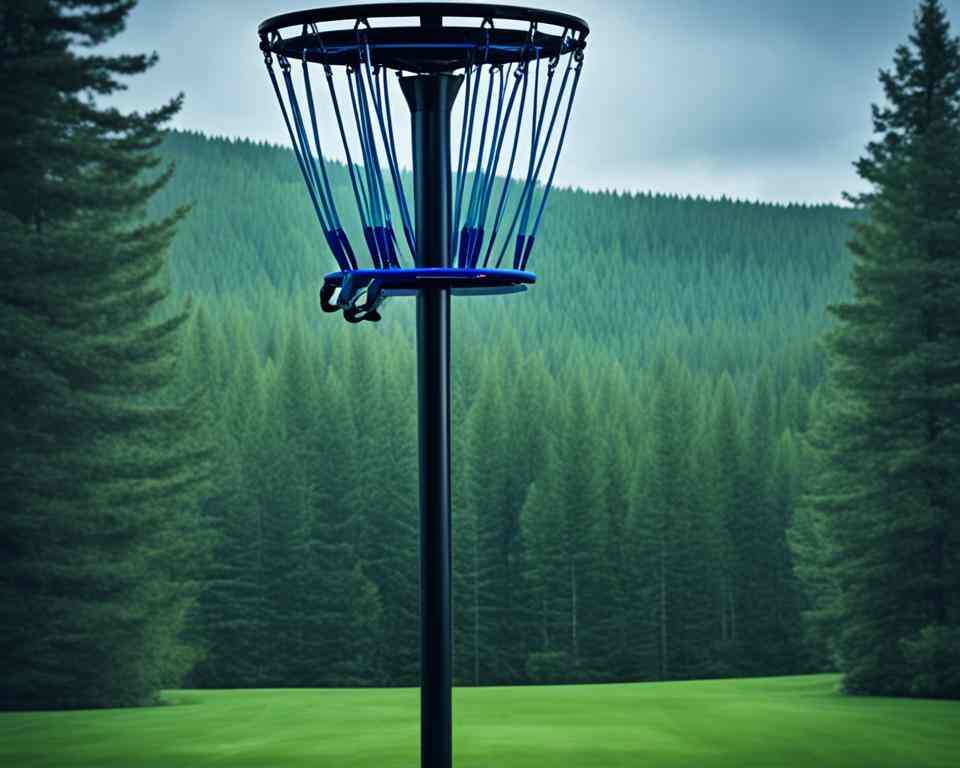
Participating in Disc Golf Leagues
Participation in disc golf leagues offers players the opportunity to engage in regular competitive play within a structured and supportive environment. Here’s a detailed exploration of what it entails:
Weekly Play and Attendance
In disc golf leagues, weekly play typically follows a predetermined schedule, with participants gathering at specified courses on designated days. The frequency of play varies depending on the league’s format, ranging from weekly to bi-weekly or monthly meetings. Key aspects of participation include:
- League Schedule: Leagues often operate on a seasonal basis, with schedules spanning several weeks or months. Players receive advance notice of upcoming matches and events.
- Attendance Expectations: Consistent attendance is encouraged to maintain the integrity and competitiveness of the league. While occasional absences may be accommodated, regular participation fosters camaraderie and fair competition.
- Check-In Procedures: Players are required to check in before each round, confirming their attendance and readiness to compete. This may involve signing in, paying league fees (if applicable), and receiving any pertinent updates or announcements.
- Tee Times or Start Times: Depending on the league’s size and logistics, tee times or start times may be assigned to groups of players to facilitate orderly play and avoid congestion on the course.
- Scoring and Reporting: Participants are responsible for accurately recording their scores during each round and submitting them according to league guidelines. This ensures transparency and fairness in determining standings and rankings.
Player Conduct and Etiquette
Maintaining a positive and respectful atmosphere is paramount in disc golf leagues, promoting sportsmanship and enjoyable competition. Considerations include:
- Etiquette Guidelines: Leagues often adhere to established etiquette principles, emphasizing courtesy, integrity, and respect for fellow competitors, course property, and spectators.
- Code of Conduct: Many leagues enforce a code of conduct outlining expected behavior on and off the course, including rules regarding language, attire, equipment use, and interactions with officials and fellow players.
- Rules Enforcement: League organizers and officials monitor play to ensure adherence to rules and regulations, addressing any infractions or disputes promptly and impartially.
- Friendly Competition: While competitiveness is encouraged, leagues prioritize friendly rivalry and mutual support among players. Participants are encouraged to congratulate opponents on good shots, offer assistance when needed, and maintain a positive attitude regardless of performance outcomes.
Equipment Requirements and Recommendations
Disc golf leagues typically have specific requirements and recommendations regarding equipment to ensure fair play and safety. Considerations include:
- Mandatory Equipment: Players are typically required to have their own set of discs, including drivers, mid-ranges, and putters, to participate in league play. Discs must meet PDGA (Professional Disc Golf Association) standards for weight, size, and design.
- Additional Gear: While not always mandatory, certain accessories such as a bag or backpack to carry discs, water bottles, snacks, scorecards, and pencils are recommended for convenience and comfort during rounds.
- Course-specific Equipment: Some leagues may require players to use certain types of discs or equipment specific to the course being played, such as glow discs for night rounds or specialized discs for heavily wooded or open courses.
- Equipment Maintenance: Players are responsible for maintaining their equipment in good condition, including regular cleaning, storage, and replacement of worn or damaged discs. Proper equipment care contributes to consistent performance and longevity of gear.
Participating in disc golf leagues offers not only the thrill of competition but also opportunities for personal growth, skill development, and social connection within the vibrant disc golf community.
Advancing in Disc Golf Leagues
In the competitive realm of disc golf leagues, advancing through the ranks and achieving recognition is a significant aspiration for many participants. Understanding the pathways and mechanisms for progression is essential for those seeking to elevate their standing within the league hierarchy. Part 6 delves into the intricate facets of advancement within disc golf leagues, elucidating the nuances of playoffs, championships, awards, prizes, and promotion and relegation systems.
Playoffs and Championships
- Qualification Criteria: Criteria for eligibility to participate in playoffs, which may be based on performance throughout the regular season, rankings, or other predetermined factors.
- Format and Structure: Variations in playoff formats, ranging from single-elimination brackets to multi-stage tournaments, each designed to showcase players’ skills under pressure.
- Venue Selection: Selection of venues suitable for hosting playoff events, taking into account factors such as course layout, amenities, and logistical considerations.
- Scheduling and Coordination: Efficient scheduling and coordination of playoff matches to accommodate participants’ availability and ensure smooth execution of the event.
Awards and Prizes
- Individual Accolades: Recognition of individual accomplishments such as most valuable player (MVP), highest scorer, most improved player, and other commendations highlighting exceptional contributions.
- Team Honors: Commendations for team-based achievements, such as league champions, runner-ups, and best-performing teams in various categories.
- Trophies and Medals: Presentation of physical tokens of achievement, including trophies, medals, plaques, and other memorabilia symbolizing success and excellence.
- Monetary and Non-Monetary Prizes: Dispensation of monetary rewards, merchandise, equipment, sponsorships, or other incentives as incentives for outstanding performance and participation.
Promotion and Relegation Systems
- Criteria for Promotion: Criteria for advancing to higher divisions or tiers based on performance, including win-loss records, point differentials, and other quantifiable metrics.
- Relegation Protocols: Protocols governing the demotion of underperforming participants to lower divisions, ensuring accountability and incentivizing consistent performance.
- Impact on League Dynamics: Analysis of the implications of promotion and relegation on league dynamics, including the redistribution of talent, the evolution of competitive landscapes, and the cultivation of parity.
- Fairness and Transparency: Ensuring fairness and transparency in the promotion and relegation process through clear criteria, impartial evaluation, and open communication channels.
Part 6 offers a comprehensive exploration of the pathways to advancement within disc golf leagues, underscoring the significance of playoffs, awards, and promotion and relegation systems in shaping the competitive landscape and fostering a culture of excellence.
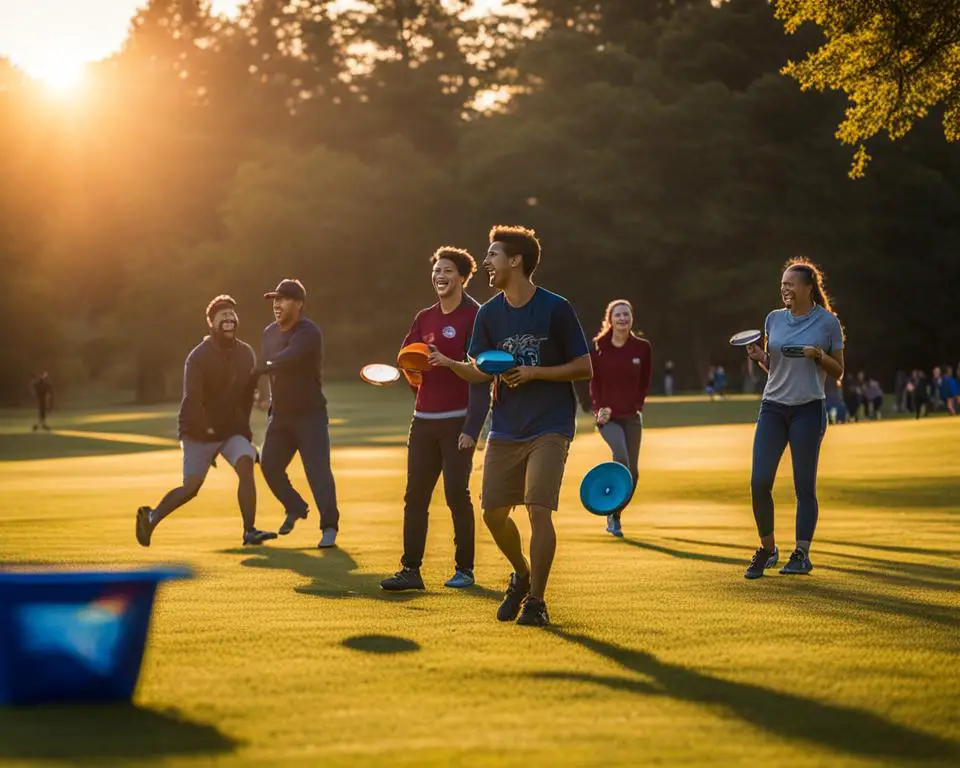
Community and Social Aspects of Disc Golf Leagues
In the realm of disc golf leagues, the sport transcends mere competition, evolving into a vibrant community-driven endeavor. Understanding the social fabric that binds players together enriches the overall experience and fosters a sense of belonging. Here, we delve into the multifaceted aspects of community and social interaction within disc golf leagues:
Building Camaraderie and Friendships
- Weekly Gatherings: Leagues host regular meetups where players converge to compete, share insights, and forge lasting friendships.
- Team Spirit: Team-based formats cultivate collaboration and camaraderie, as players unite to pursue collective success.
- Off-Course Engagement: Social events such as barbecues, fundraisers, and volunteer initiatives foster connections beyond the fairways, strengthening the community bonds.
Volunteer Opportunities and Contributions
- League Administration: Volunteers play vital roles in managing league operations, organizing events, and maintaining course infrastructure.
- Mentorship Initiatives: Experienced players often mentor newcomers, fostering a culture of learning and support within the community.
- Environmental Stewardship: Leagues engage in eco-friendly initiatives, organizing clean-up efforts and advocating for sustainable practices to preserve natural habitats.
Impact on Local Disc Golf Communities
- Economic Stimulus: Disc golf leagues contribute to the local economy through player expenditures on equipment, lodging, and dining.
- Community Outreach: Partnerships with schools, parks, and recreation departments introduce disc golf to new audiences, promoting physical activity and outdoor recreation.
- Environmental Advocacy: Disc golfers champion environmental conservation, organizing habitat restoration projects and advocating for responsible land use practices.
By embracing diversity and fostering inclusive environments, disc golf leagues serve as catalysts for building stronger, more connected communities. Through shared experiences on the course and collaborative efforts off it, players cultivate a sense of belonging and contribute to the broader social fabric of the sport.
Resources for Disc Golf League Participants
Participating in disc golf leagues often involves utilizing various resources to enhance your experience and improve your game. Here are some invaluable resources that disc golf league participants can leverage:
Online Platforms and Resources
In the digital age, online platforms play a crucial role in connecting disc golfers, organizing leagues, and providing essential resources. Here are some prominent online resources:
- Disc Golf Scene: An online platform that facilitates league management, player registration, and score tracking. It provides a centralized hub for league organizers and participants to communicate and coordinate events.
- PDGA (Professional Disc Golf Association) Website: The official website of the PDGA offers a wealth of resources, including tournament listings, player ratings, rulebooks, and instructional materials. It serves as a comprehensive resource for both casual players and competitive athletes.
- Disc Golf Reddit Community: Reddit hosts an active community of disc golf enthusiasts who share tips, strategies, and experiences. Subreddits like r/discgolf provide a platform for discussions, advice, and camaraderie among players of all skill levels.
- Online Forums and Social Media Groups: Platforms like Facebook, Disc Golf Course Review (DGCR), and Disc Golf Course Collectors provide forums and groups where players can engage with fellow disc golfers, exchange information about leagues, and seek advice on equipment and techniques.
Disc Golf League Organizations and Affiliations
Several organizations play a significant role in governing and promoting disc golf leagues at local, national, and international levels. Here are key organizations and affiliations:
- Professional Disc Golf Association (PDGA): The PDGA is the governing body for professional and amateur disc golfers worldwide. It sanctions tournaments, establishes rules and standards, and supports the growth of disc golf through education and advocacy.
- Local Disc Golf Clubs: Many regions have dedicated disc golf clubs that organize leagues, tournaments, and community events. These clubs serve as hubs for local disc golf communities and provide opportunities for players to connect and compete.
- Corporate Sponsors and Partners: Companies within the disc golf industry, such as disc manufacturers, retailers, and apparel brands, often sponsor leagues and provide support in the form of prizes, merchandise, and promotional materials.
Additional Reading and References
For those seeking to deepen their understanding of disc golf leagues and improve their performance on the course, there is a wealth of literature and educational materials available. Here are some recommended resources:
- Books and Instructional Guides: Authors like Dave Dunipace, Tim Steward, and Scott Stokely have written books offering insights into disc golf techniques, strategies, and mental game.
- Online Courses and Video Tutorials: Platforms like Udemy, Disc Golf Strong, and YouTube offer courses and tutorials covering various aspects of disc golf, including throwing techniques, course management, and mental preparation.
- Podcasts and Interviews: Podcasts such as The Disc Golf Answer Man, The Disc Golf Podcast, and The Zen Disc Golf Podcast feature interviews with top players, coaches, and industry experts, providing valuable insights and advice.
By leveraging these resources, disc golf league participants can enhance their skills, connect with fellow players, and fully immerse themselves in the vibrant disc golf community.
Conclusion
In conclusion, disc golf leagues offer a vibrant and engaging community for players of all skill levels. From the structured formats and divisions to the camaraderie fostered on the course, these leagues provide a platform for players to improve their skills, forge friendships, and contribute to the growth of the sport.
Whether you’re a seasoned competitor or new to the game, joining a disc golf league can be a rewarding experience that enhances your enjoyment of the sport while connecting you with fellow enthusiasts. Embrace the opportunities, adhere to the rules, and above all, have fun out on the course!

